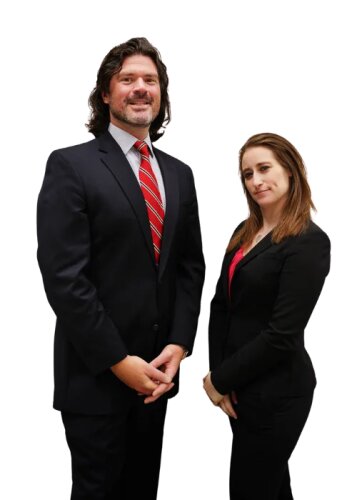Best Residence by Investment Lawyers in New York City
Share your needs with us, get contacted by law firms.
Free. Takes 2 min.
List of the best lawyers in New York City, United States
1. About Residence by Investment Law in New York City, United States
Residence by Investment in New York City is primarily pursued through the federal EB-5 Immigrant Investor Program. This program allows eligible foreign investors to obtain conditional permanent residence by investing in a US commercial enterprise that creates or preserves jobs for American workers. In New York City, developers frequently rely on EB-5 funding for real estate and infrastructure projects, including hotels, mixed-use developments, and commercial facilities.
Key requirements include investing in a new commercial enterprise and creating at least 10 full-time jobs per investor, with job creation counted directly or indirectly depending on the project structure. Investors may apply directly or through USCIS designated Regional Centers, which often count indirect jobs and offer streamlined compliance for complex real estate ventures in the city.
The process typically involves filing Form I-526, obtaining conditional permanent residence, and later filing Form I-829 to remove conditions within 90 days of the second anniversary of the conditional residence. Family members can obtain derivative residency, meaning spouses and unmarried children under 21 may accompany or join the investor in the process.
In New York City, counsel helps assess project viability, perform due diligence on the sponsor, and ensure fund handling and governance meet regulatory standards. The program is federal in scope, so NYC residents must comply with national policies and USCIS procedures rather than local city ordinances alone. Job creation, investment tracing, and regional center compliance remain central concerns for NYC projects.
The EB-5 program requires the investment to create or preserve at least 10 full-time jobs per investor.Source: USCIS EB-5 Immigrant Investor Program.
Regional Centers provide a framework to count indirect jobs and manage complex capital structures in urban projects.Source: USCIS EB-5 Immigrant Investor Program.
Recent changes include the EB-5 Reform and Integrity Act of 2022, which reauthorized the regional center program and added investor protections.Source: USCIS EB-5 Reform and Integrity Act of 2022.
2. Why You May Need a Lawyer
In NYC, having a dedicated attorney for Residence by Investment helps you avoid common pitfalls and align with current regulations. Complex structures and cross-border funds require careful documentation and risk management. A focused legal counsel can coordinate the entire process from start to finish.
- Direct investment versus regional center funding. If you plan a direct investment in a NYC project, you must prove direct job creation and manage the project structure. A lawyer can compare this with regional center structures that count indirect jobs and streamline compliance.
- Tracing funds and source of funds. NYC residents often have funds sourced from business sales, family wealth, or cross-border loans. An attorney can assemble a credible source-of-funds package and address anti-money-laundering concerns.
- Consent and governance for complex entities. Investments in LLCs or partnerships require precise operating agreements and control arrangements to satisfy USCIS requirements and avoid fiduciary risks.
- Preparing and submitting I-526 petitions. A misstep in forms, supporting documentation, or business plans can delay or derail eligibility. Legal counsel helps tailor filings to the NYC project and regional center framework.
- Removal of conditions after two years. The I-829 petition to remove conditions has strict timelines and evidentiary standards. An attorney ensures the project continues to meet job creation and investment continuity during this period.
- Derivative eligibility for family members. Spouses and children under 21 have specific timelines and filing requirements. A lawyer coordinates these so that all family members maintain lawful status.
3. Local Laws Overview
Residence by Investment is governed primarily by federal immigration law and its implementing regulations. New York City residents must understand the interplay between federal rules and local project implications. The city itself does not issue separate EB-5 approvals, but NYC projects must meet national standards and often rely on local financing and due diligence practices.
Key federal law and regulation names to know:
- Immigration and Nationality Act (INA) - 8 U.S.C. § 1153(b)(5). This provision establishes the immigrant investor category and job-creation requirements that form the basis of EB-5 eligibility.
- 8 C.F.R. § 204.6 - Petitions for immigrant investors. This regulation governs the filing, processing, and approval of I-526 petitions and related investor filings.
- EB-5 Reform and Integrity Act of 2022. This statute reauthorized the Regional Center program through a multi-year horizon and added integrity and investor-protection measures for EB-5 transactions.
The EB-5 Reform and Integrity Act of 2022 reauthorized the Regional Center program and introduced enhanced investor protections.Source: USCIS.
8 C.F.R. § 204.6 provides the framework for petitions by immigrant investors and related family members.Source: eCFR.
The Immigration and Nationality Act establishes the fundamental EB-5 visa category and requirements.Source: U.S. Code.
4. Frequently Asked Questions
What is the EB-5 Immigrant Investor Program?
How do I qualify for EB-5 in New York City?
Do I need to invest through a Regional Center or direct in NYC?
What documents prove the source of funds for an EB-5 investment?
How long does the I-526 petition process typically take?
What happens after I get conditional permanent residency?
Can my spouse and children obtain derivative residency?
What is the difference between a TEA and a non-TEA investment?
Do I need to hire a NYC-based lawyer or can I work with any attorney?
What are the risks of investing in an EB-5 project in NYC?
How much money do I need to invest now, and how is the amount determined?
What steps should I take if USCIS denies my I-526?
What is the timeline to remove conditions on my residency status?
5. Additional Resources
For authoritative guidance on Residence by Investment, consult these official resources and government bodies. They provide current rules, processing steps, and policy changes you will need to follow.
- USCIS - EB-5 Immigrant Investor Program (uscis.gov) - Official federal guidance on eligibility, forms, and processing procedures for I-526, conditional residency, and I-829 removal of conditions.
- U.S. Department of State - EB-5 Immigrant Investors (travel.state.gov) - Information on consular processing and visa issuance for EB-5 applicants abroad.
- eCFR - 8 C.F.R. § 204.6 (ecfr.gov) - Federal regulations governing immigrant investor petitions and related family member petitions.
6. Next Steps
- Define your goals and budget. Outline whether you intend direct investment or regional center participation, and set a clear budget for the investment and legal fees. This step typically takes 1 week.
- Engage a New York City based attorney specialized in EB-5. Schedule an initial consultation to review your eligibility, project options, and timeline. Expect 1-2 weeks to identify a suitable attorney and sign a retainer.
- Gather documenting evidence of funds and identity. Collect tax returns, bank statements, corporate records, and any loans or gifts supporting the invested funds. This usually takes 2-4 weeks depending on your circumstances.
- Evaluate investment options and perform due diligence. Review the NYC project or regional center’s business plan, job projections, and compliance history. Allocate 2-6 weeks for a thorough assessment.
- Prepare and file the I-526 petition (via your attorney). The I-526 package will include the business plan, source-of-funds documentation, and investor questionnaires. Expect 1-3 months for preparation and filing after due diligence.
- Coordinate consular processing or adjustment of status. After I-526 approval, file for conditional permanent residency either at a U.S. embassy or within the United States, depending on your location. Processing timelines vary by case and current USCIS workload.
- Plan for removal of conditions (I-829) around the two year mark. Track the 90-day window before the second anniversary to file I-829, with supporting evidence showing ongoing investment and job creation. Timelines typically range 12-24 months for processing.
Lawzana helps you find the best lawyers and law firms in New York City through a curated and pre-screened list of qualified legal professionals. Our platform offers rankings and detailed profiles of attorneys and law firms, allowing you to compare based on practice areas, including Residence by Investment, experience, and client feedback.
Each profile includes a description of the firm's areas of practice, client reviews, team members and partners, year of establishment, spoken languages, office locations, contact information, social media presence, and any published articles or resources. Most firms on our platform speak English and are experienced in both local and international legal matters.
Get a quote from top-rated law firms in New York City, United States — quickly, securely, and without unnecessary hassle.
Disclaimer:
The information provided on this page is for general informational purposes only and does not constitute legal advice. While we strive to ensure the accuracy and relevance of the content, legal information may change over time, and interpretations of the law can vary. You should always consult with a qualified legal professional for advice specific to your situation.
We disclaim all liability for actions taken or not taken based on the content of this page. If you believe any information is incorrect or outdated, please contact us, and we will review and update it where appropriate.











